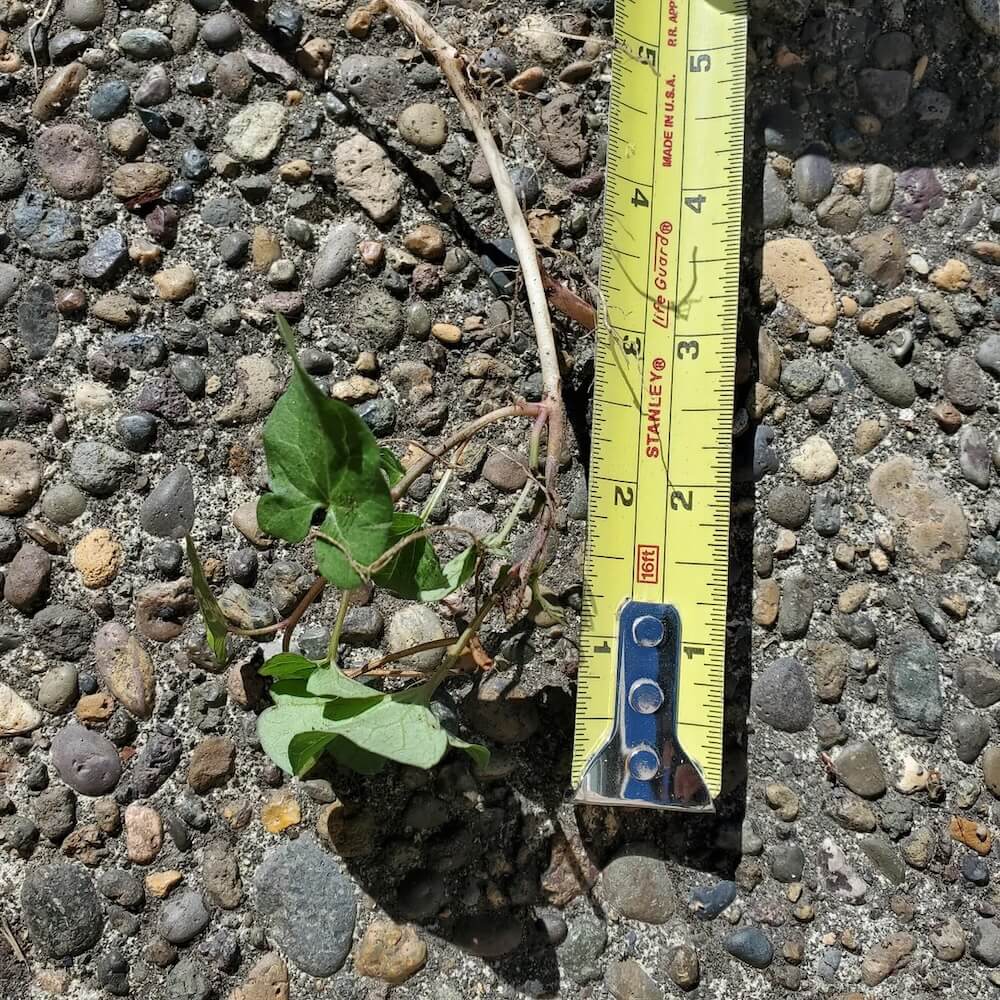Invasive weeds are any gardener's worst nightmare. Sometimes, you just need to lament your frustrations over the generally maddening plants. One homeowner recently took to Reddit to air their grievances about their garden's moral enemy — bindweed.
The home gardener wrote that they've been "battling bindweed" since buying their house years ago.


Bindweed is an invasive perennial weed that can root up to 9 feet into the soil, making it extremely hard to remove. According to an Oregon State University report, bindweed has serious staying power because it can tolerate poor soil conditions. As bindweed grows, it latches on to other plants with its stems and creeping horizontal roots, making it devastating for your beloved greenery.
"I'm just digging and pulling, trying to get at the bloody things all the way down," the Redditor posted. "I probably lose more than I win, but I think I'm slowly making progress."
But the gardener recently hit a wall in their bindweed battle, turning to Reddit in frustration.
"Today, one of them very graphically reminded me what I'm up against: about 2-3 inches just barely peeking above ground — and around 3-4 feet, with more branches, underground," they wrote. "This particular invader was happily growing and spreading…through some thin plastic sheeting that previous owners had buried a few inches down, presumably in hopes of preventing this very kind of plant activity."
Invasive weeds can be devastating to a garden — and to local ecosystems. They can overtake pollinator-supporting plants and disrupt native ecosystems. Removing them is a necessity for a healthy, diverse garden. To eradicate bindweed for good, Oregon State recommends "persistence and dedication."
"Digging up bindweed for a minimum of three to five years might be effective," the university reports. "Any root portions left in the soil will re-sprout in about two weeks, so be prepared to re-treat the affected area every three weeks. Repetitive digging and pulling every two to three weeks throughout the growing season will ultimately deplete the root system and provide control."
Unfortunately, many commenters on the Reddit post said they resort to weedkiller to remove bindweed from their beloved gardens.
🗣️ Should we be actively working to kill invasive species?
🔘 Absolutely 💯
🔘 It depends on the species 🤔
🔘 I don't know 🤷
🔘 No — leave nature alone 🙅
🗳️ Click your choice to see results and speak your mind
"Bindweed causes me to be evil," one commenter wrote. "I eradicate it chemically because there seems to be no other way. Not proud of my approach, but I will not lose to this stuff."
Many gardeners swear by toxic chemicals to eradicate invasive plants, but these products can have harmful side effects. Herbicides can kill wanted native plants and crucial pollinators. Plus, weedkillers can pollute soil and nearby water sources, as it's impossible to fully contain the chemical. Herbicides are even linked to human health issues in the liver, kidneys, and reproductive system, as well as certain cancers.
The frustrated Reddit poster, however, said they plan to use the more planet-friendly approach of removing the weeds as they pop up.
"More experienced gardening friends suggest that digging and pulling is the most effective attack, but also tell me to be prepared for a years-long battle," they wrote in response to a comment. "I'm okay with that, as long as I see a little progress each season. Check back with me around 2029 or so, I guess…"
When planting your garden, prioritize native plants that thrive in your local environment. Native plants are adapted to live in harmony with local wildlife and plantlife, and support local pollinators that boost the entire ecosystem.
Join our free newsletter for easy tips to save more and waste less, and don't miss this cool list of easy ways to help yourself while helping the planet.









